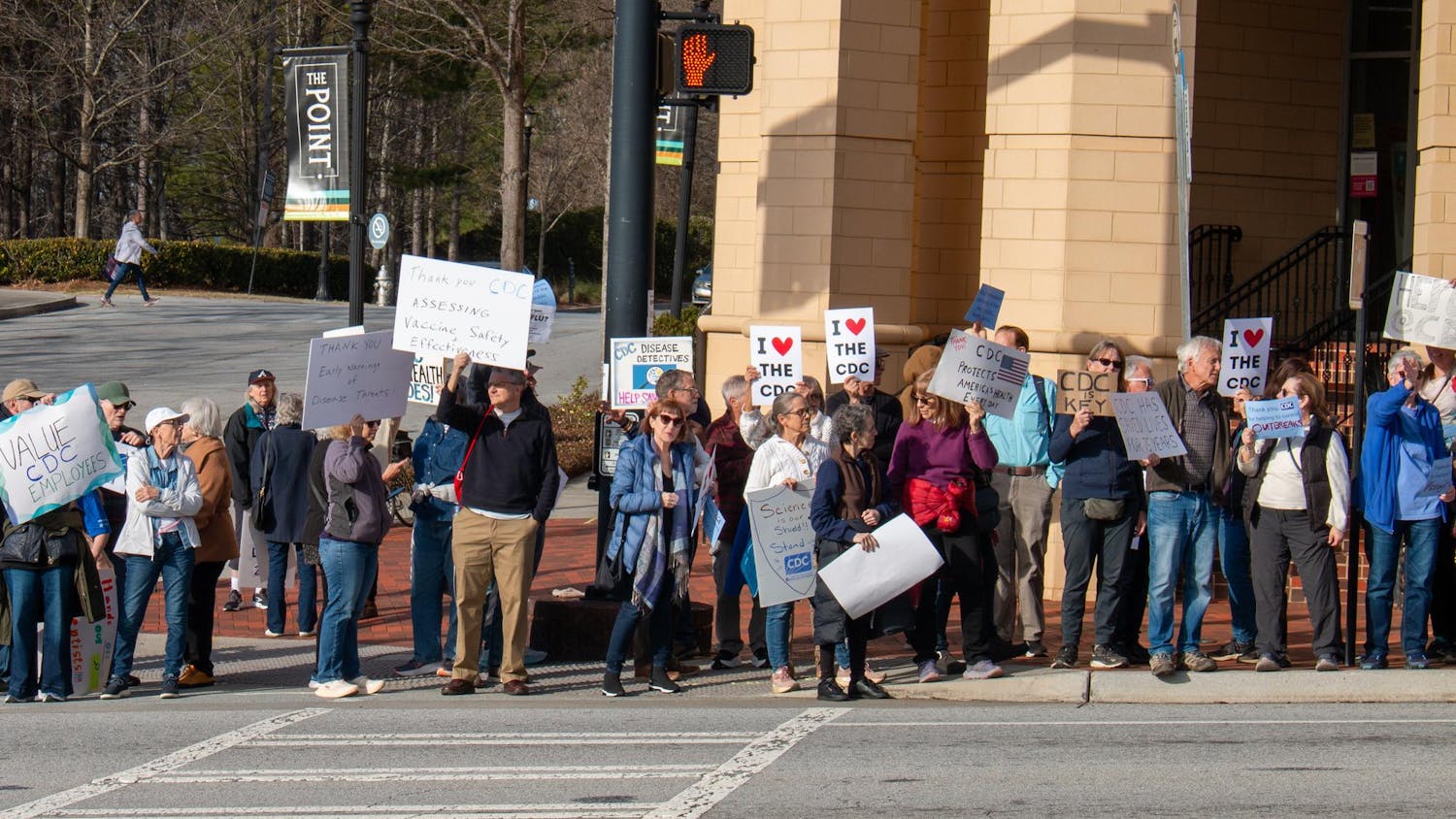Maximilian Aue, a professor of German Studies who founded the University's longest-standing summer study abroad program to Vienna in 1973, died on Aug. 6. He was 69.
The cause was sustained injury from a vehicular accident.
A genuinely bilingual scholar whose Viennese German was as proficient as his English, Aue had a profound interest in and knowledge of comparative and German literature, according to Associate Professor Peter Höyng, his colleague in the German Studies Department.
He has translated several key philosophical texts and conducted research on romance, decay, and death in 19th and 20th century Vienna. Aue's work has earned him two University Research Committee grants as well as one from American Council of Learned Societies grant.
Aue, who has worked with students at every different level throughout his 44-year career at the University, joined the German Studies faculty in 1968 and received his Ph.D in German from Stanford University in 1973.
Despite living in Atlanta for most of his life, Aue - whose passion for culture, literature, music, and the arts pervaded his personality - considered Vienna, Austria his true home. In addition to studying contemporary Austrian literature, he focused on Modernist philosophy and German Romanticism. He has published articles in several journals and at the time of his death, he was working on a book entitled "At Utopia's Threshold: The Reinvention of Venice in German Literature and Thought in the Twentieth Century." This work aimed to explore the development of Viennese culture during the 19th and 20th centuries.
Students remember Aue as a professor who didn't allow his own intellectual prowess to preclude others' suggestions or thoughts.
He encouraged his classes to accept all ideas, no matter how intellectual they may seem, with open minds.
"[He] was eager to engage everybody," said College senior Sarah Corrigan, a student in the German Studies department. "He would ask hard questions, too. [He was] always open to discussion through different mediums."
Corrigan fondly recalled going to his office hours where he'd translate and discuss poetry with her and her friend, helping them understand and place it into a historical context.
"[He] would translate it in the context of this generation and this time," she said. "Honestly, [it] was one of the most precious parts of my college career. It seemed that Aue felt that the best way to learn was to internalize material in a personal way and let it grow through your own experience. And he was a true guide in this way, in introducing beautiful material and helping it grow in the ideas and essays of his students."
In addition, colleagues remembered Aue as a warm person who treated everyone he met with respect and was always eager to help. In addition, he had a witty sense of humor and enjoyed athletic pursuits - such as biking to school "before it was fashionable," according to Hoyng, and swimming.
"He was a gentleman, always with a touch of an elegant demeanor, sensible, open-minded, and a colleague who always pulled us together," said Hoyng, who cited Aue's ability to successfully mediate disagreements within the department.
News Editor Jordan Friedman contributed reporting.
– By Stephanie Fang
Read More
Trending








